3D printing has transformed how we design aquarium accessories — and when it comes to creating the perfect aquarium cave, material and shape matter more than most realize. Whether you care for bottom dwelling fish like plecos or shrimp, or elegant bettas and guppies, a well-chosen cave improves both behavior and health of your aquatic pets. In this expert guide, I’ll show you which Aquireef3D cave designs suit each species best — all engineered for pet safety and long-life durability.
3D Printing Aquarium Caves – What to Know Before Start
As I’ve already written in-depth articles covering each of the key points below, this section will be brief — just a quick refresher with links for anyone who wants to dive deeper into specific topics. For everyone else, consider it a short reminder before we kick off exploring my cave designs in detail.
Before choosing an aquarium cave, it’s essential to understand what matters most: the behavior, size and habits of your aquatic pet. For example, an active pleco needs a long, secure tube, while a playful guppy prefers open access and rounded edges. Although 3D printing allows for precise customization, your design still must match the species’ needs. Get more detailed info on this in this topic.
Equally important is the choice of material. PETG is preferred for underwater use due to it’s safety, non-toxicity and structural stability over time. Choosing the right filament ensures your pets remain safe and healthy. More info on differences between the printing filaments here.
Tank size also plays a role — a large cave in a nano tank may limit swimming space or crowd the environment, while too many small caves in a large tank may go unnoticed. Ventilation, flow dynamics and ease of cleaning should also be considered. Good caves provide not just shelter, but contribute to a balanced, functional aquascaping.
Best Aquarium Cave Designs for Cichlids & Similar Fish
When it comes to creating the right aquarium cave for cichlids — size really matters. Since there are many different cichlid species with varying needs, I’ll focus here on one of the most popular and commonly kept groups: the African Rift Lake Cichlids, especially species from Lake Malawi and Lake Tanganyika like Pseudotropheus, Labidochromis or Neolamprologus. These fish are known for their territorial and semi-aggressive behavior, particularly during breeding or when establishing dominance.
For these species, caves must be large enough to establish territory but tight enough to feel secure. At Aquireef3D I offer several designs that fit the needs perfectly:
Unique Design Cichlid Cave — Tailored for aggressive fish, with a structure that offers visibility, hiding options while keeping visual control of the surroundings.
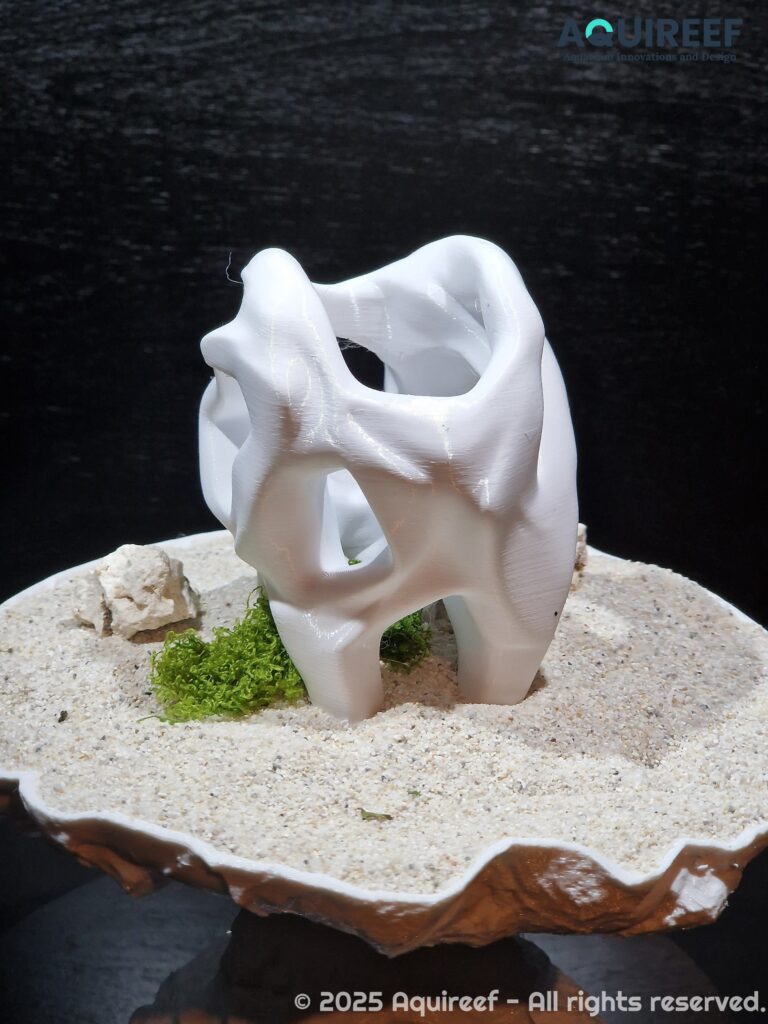
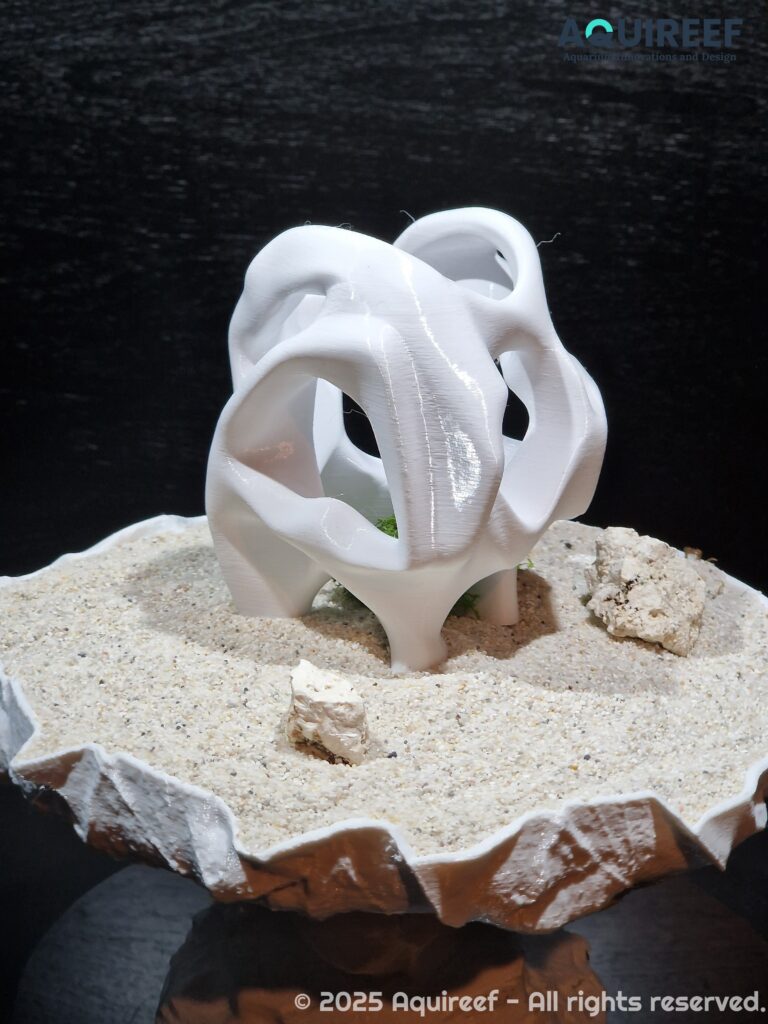
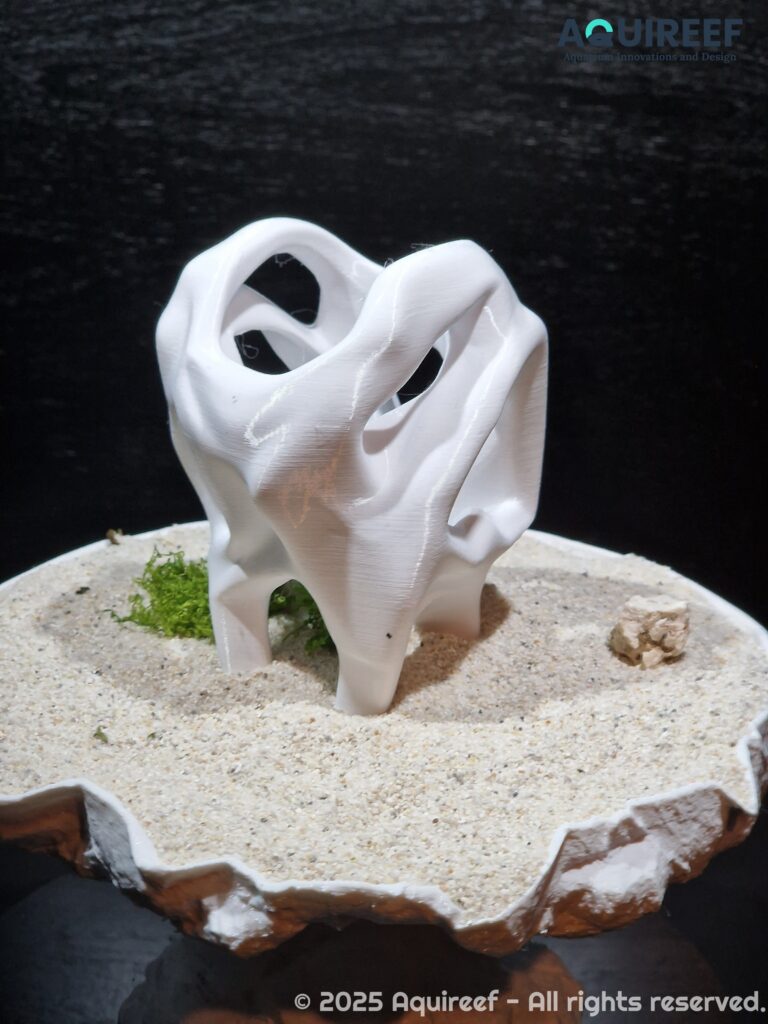
Volcano Corner Cave — Designed for corner placement, breaking the line of sight and reducing stress in territorial setups.
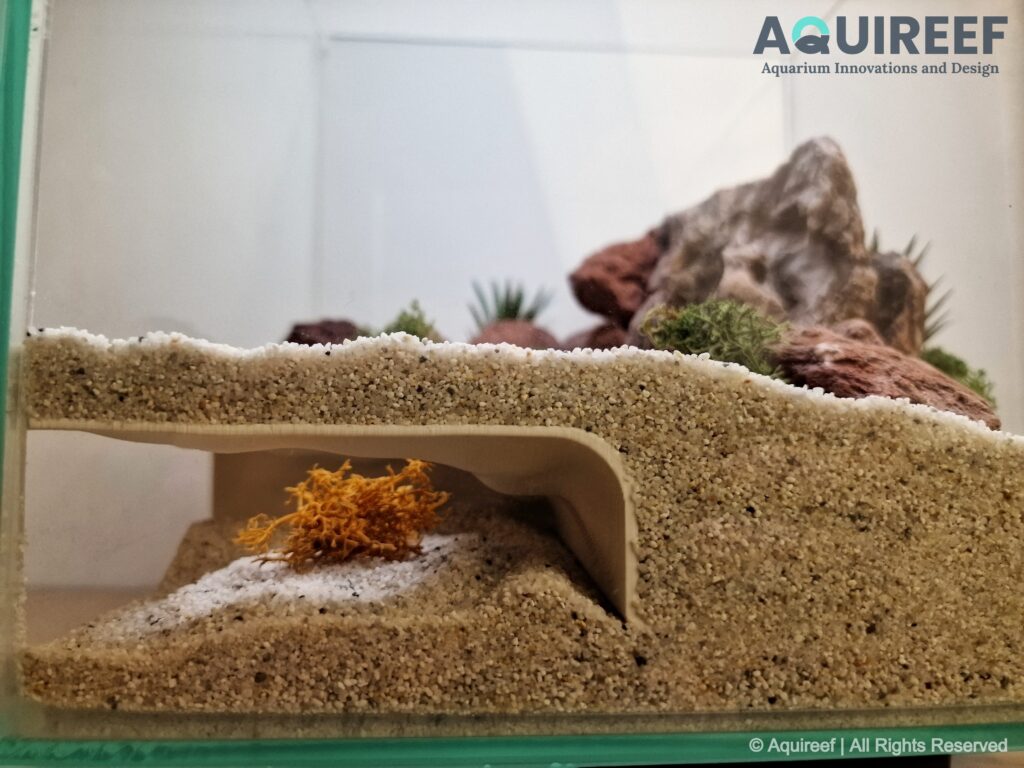
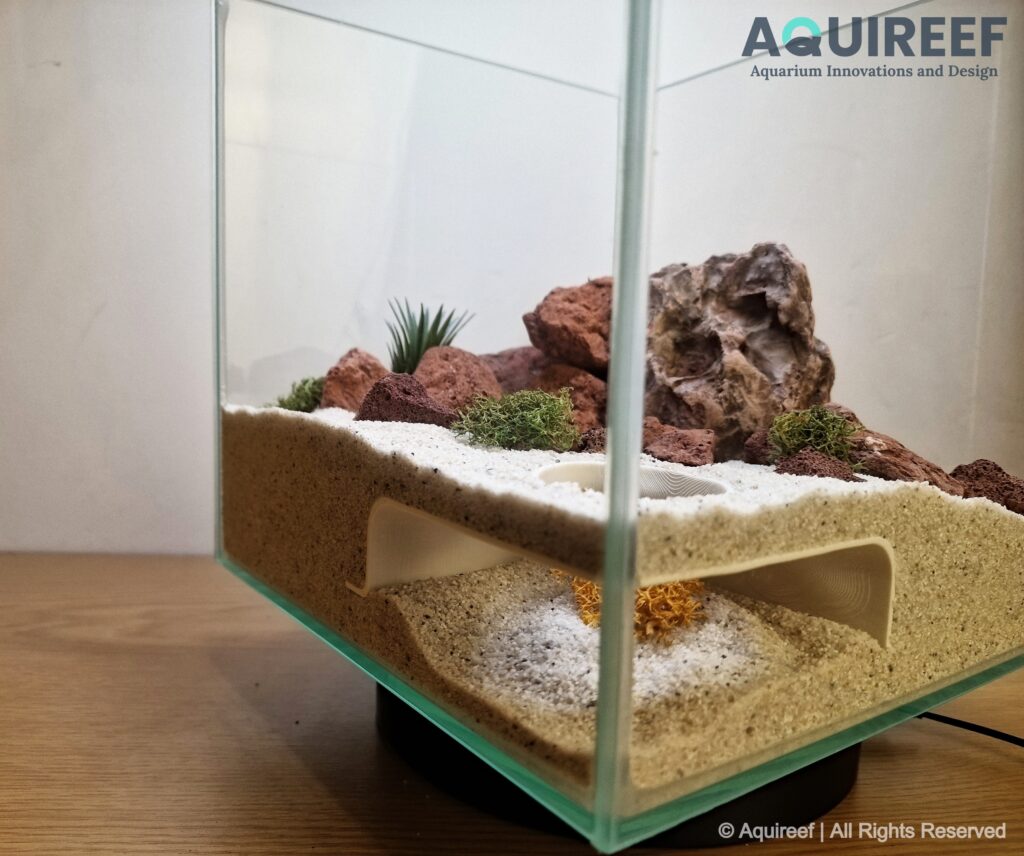
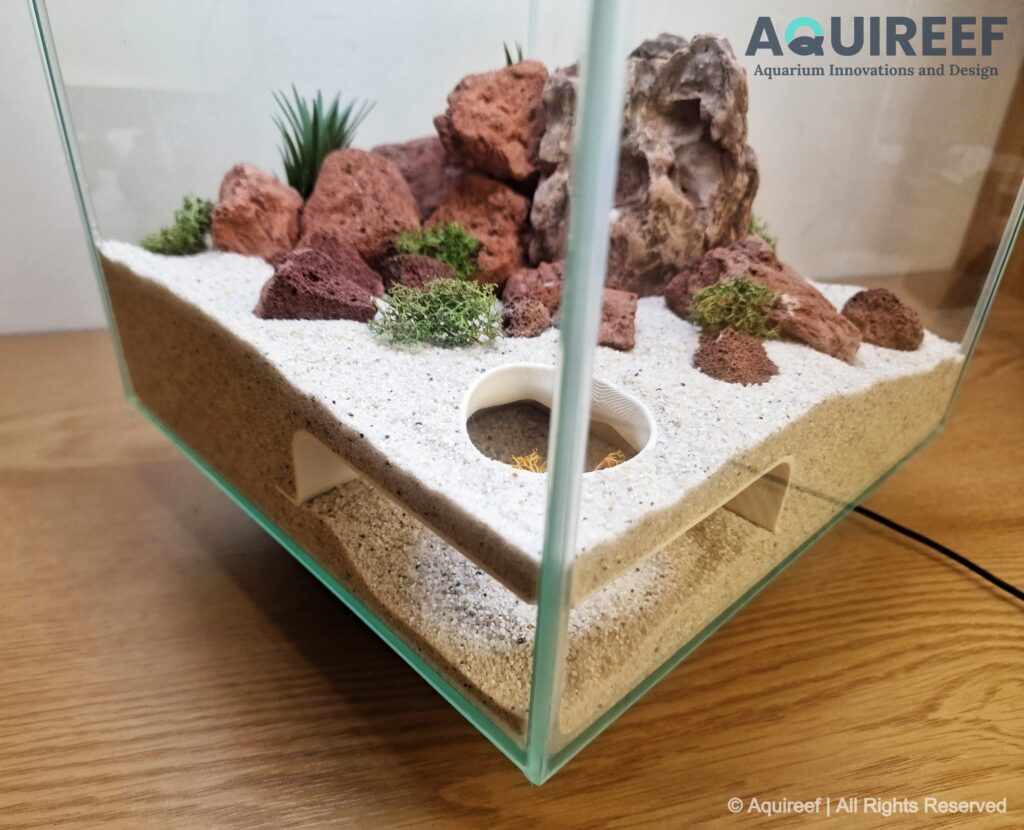
When choosing a cave for you cichlid fish or creating your own design, always keep in mind:
- Recommended layout: Medium to large caves with multiple entrances
- Entrance size: At least 1 cm larger than the fish in every direction
- Why it works: Cichlids are aggressive and territorial, especially during breeding. Spacious multi-entry caves help reduce fights and provide secure territory.
- Placement tip: Put caves near rocks or in tank corners to block lines of sight.
- Care tip: Check regularly — cichlids often bury entrances with sand.
💡 Fun fact: Cichlids may modify the cave by digging or pushing substrate — I’ve seen it firsthand!
Aquarium Cave Picks for Guppies & Small Fish
The Elephant Nose design cave will be a perfect fit for Guppies (Poecilia reticulata), Zebra Danios (Danio rerio), Tiger Barbs (Puntigrus tetrazona), Swordtails (Xiphophorus hellerii), Crayfish (Procambarus clarkii) and even Thai Micro Crabs (Limnopilos naiyanetri).
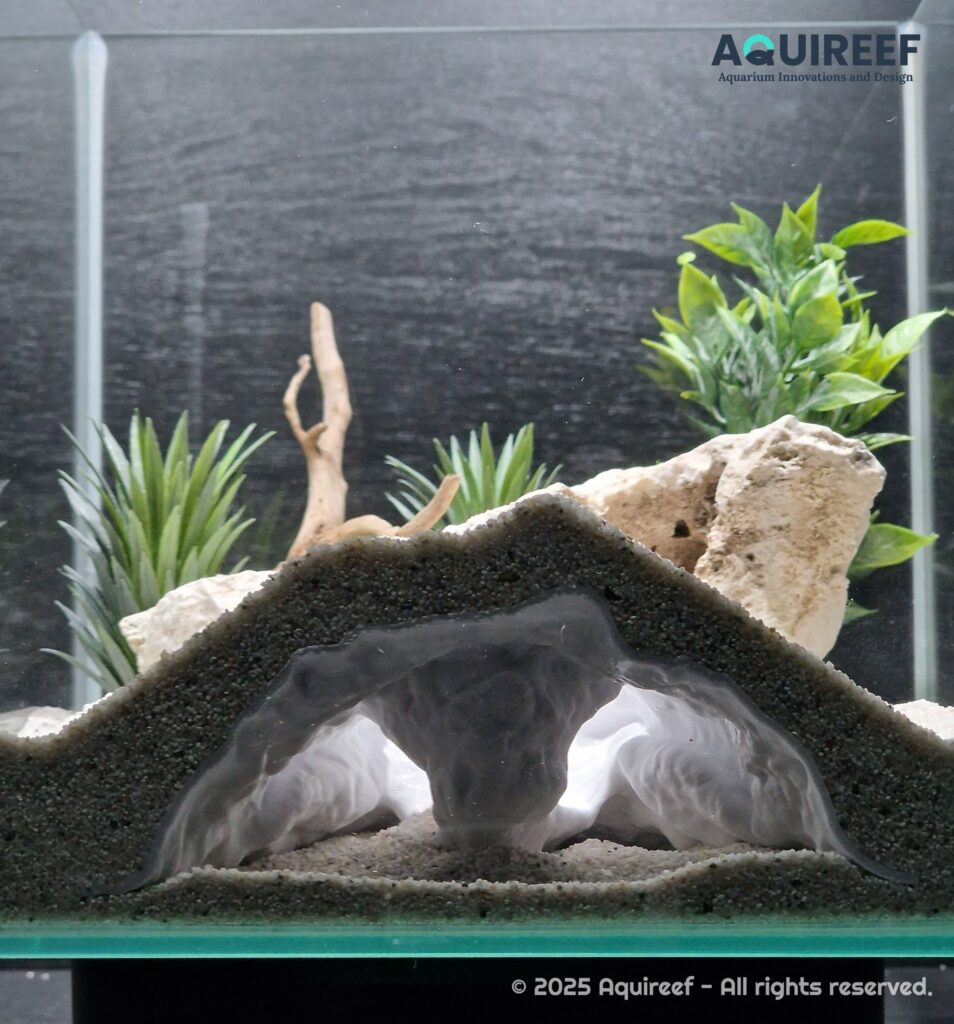
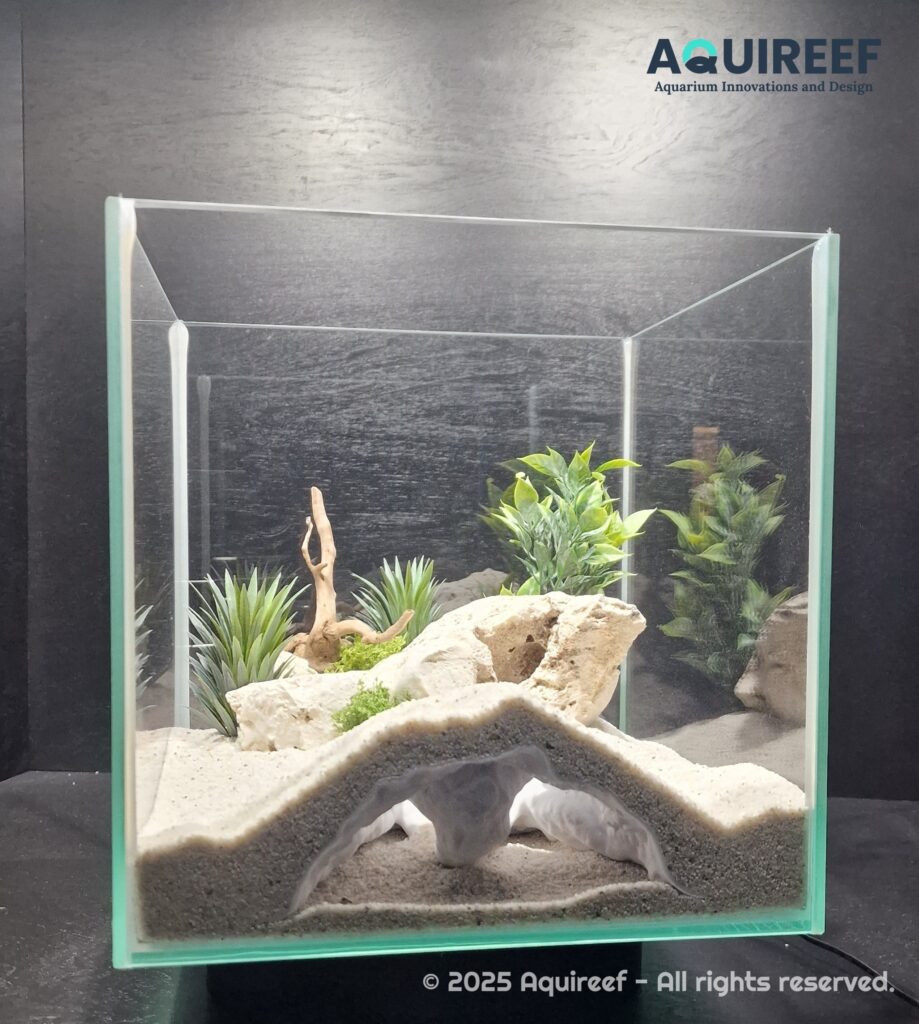
- Recommended layout: Small to medium caves with smooth entrances
- Entrance size: ~1 cm larger than fish body
- Why it works: These fish use caves for fun, not hiding. Smooth PLA designs protect delicate fins.
- Placement tip: Scatter throughout open areas for accessibility.
- Care tip: Minimal maintenance; these fish don’t linger inside.
💡 Fun fact: My guppies love to play “follow the leader” game through the caves!
The Ultimate Shrimp Hide Designs: Gyroid Structures
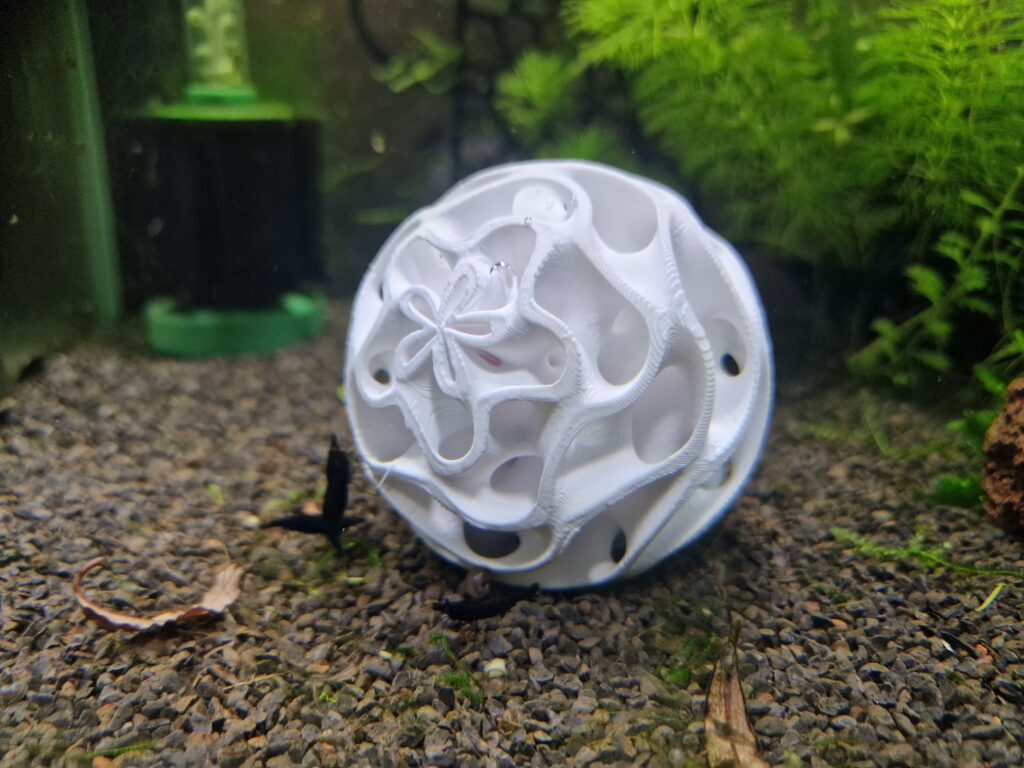
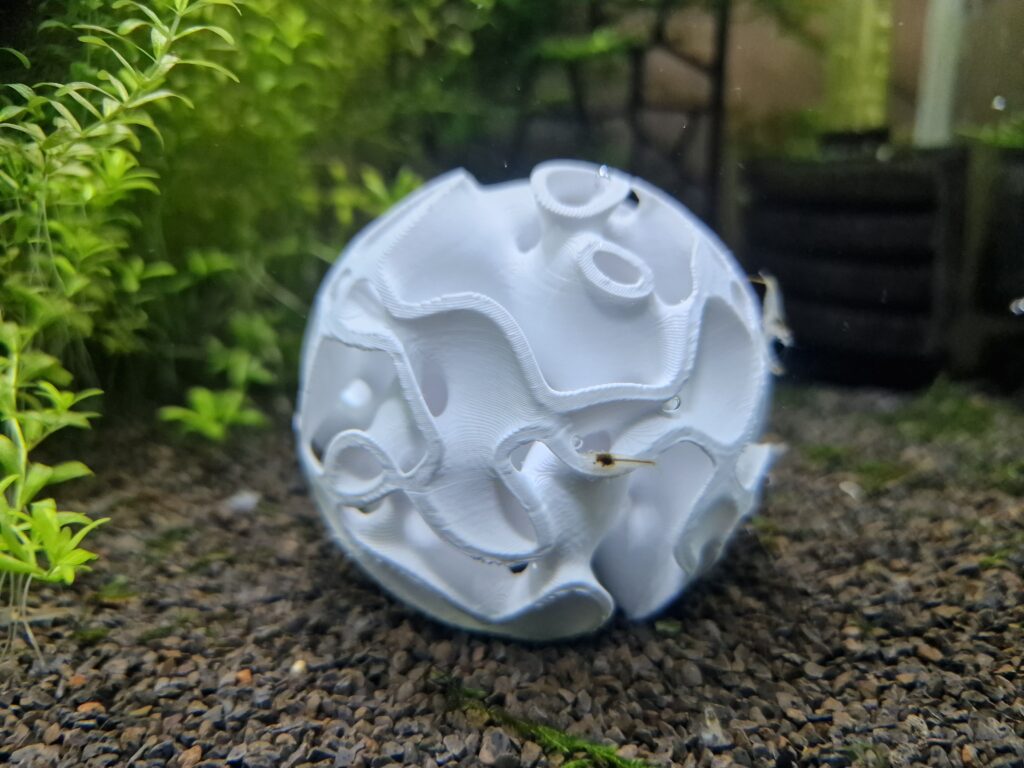

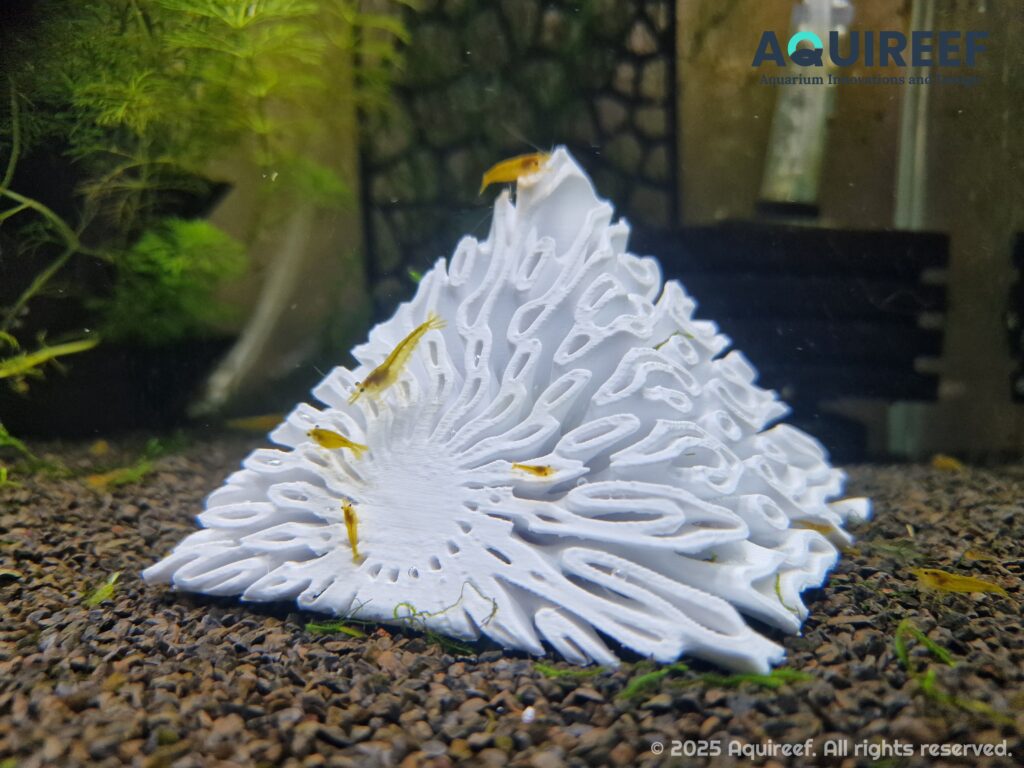
- Recommended layout: Multi-tunnel gyroid caves
- Why it works: Shrimp thrive in complex tunnels and feed on biofilm buildup inside caves. These designs provide safety during molting.
- Placement tip: Near moss or plants for biofilm and natural camouflage.
- Care tip: Don’t scrub too clean — light biofilm is shrimp food!
💡 Fun fact: I often find shrimp molts hidden deep inside — proof they trust and like these cave designs.
Top Pleco Cave Design and other Bottom Dwelling Fish like Loaches, Catfish or Crayfish
The unbeatable TOP #1 for bottom dwelling fish — the Pleco Hotel tubular cave design.
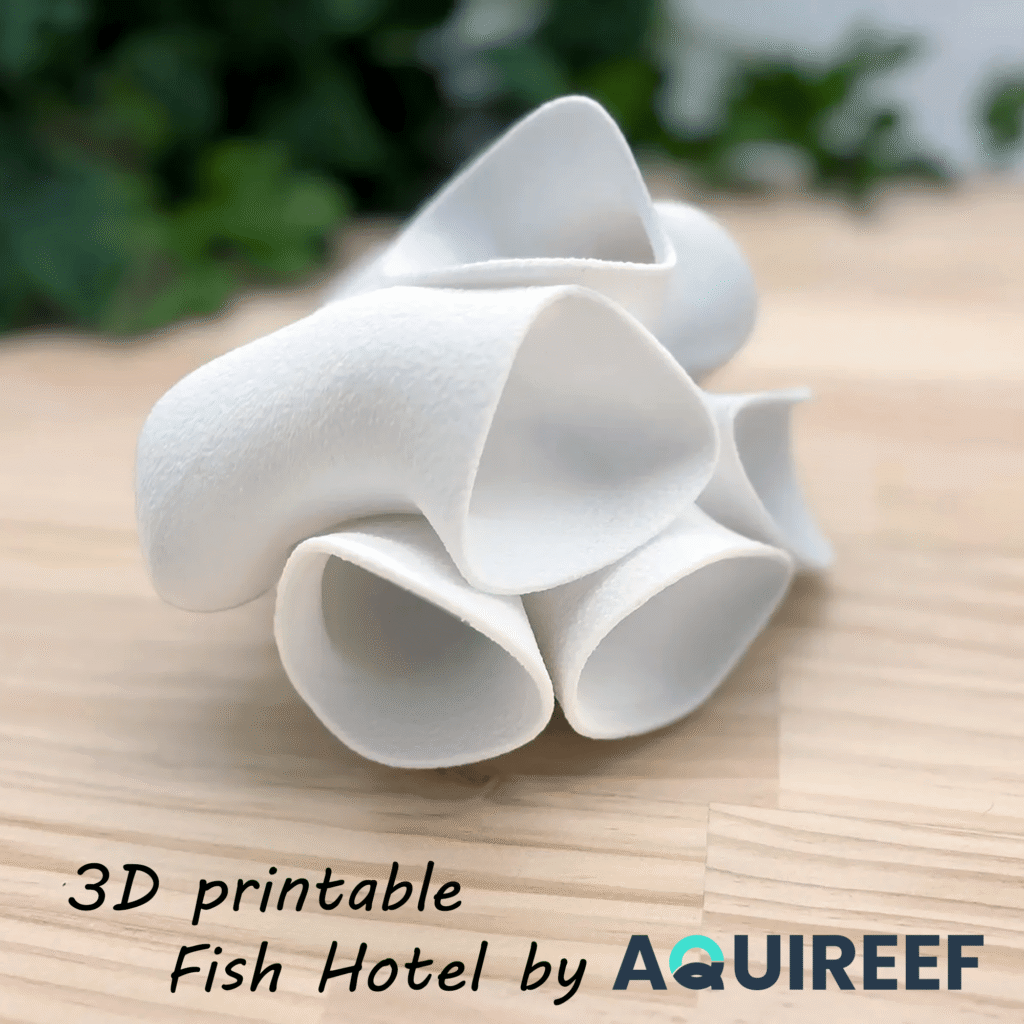
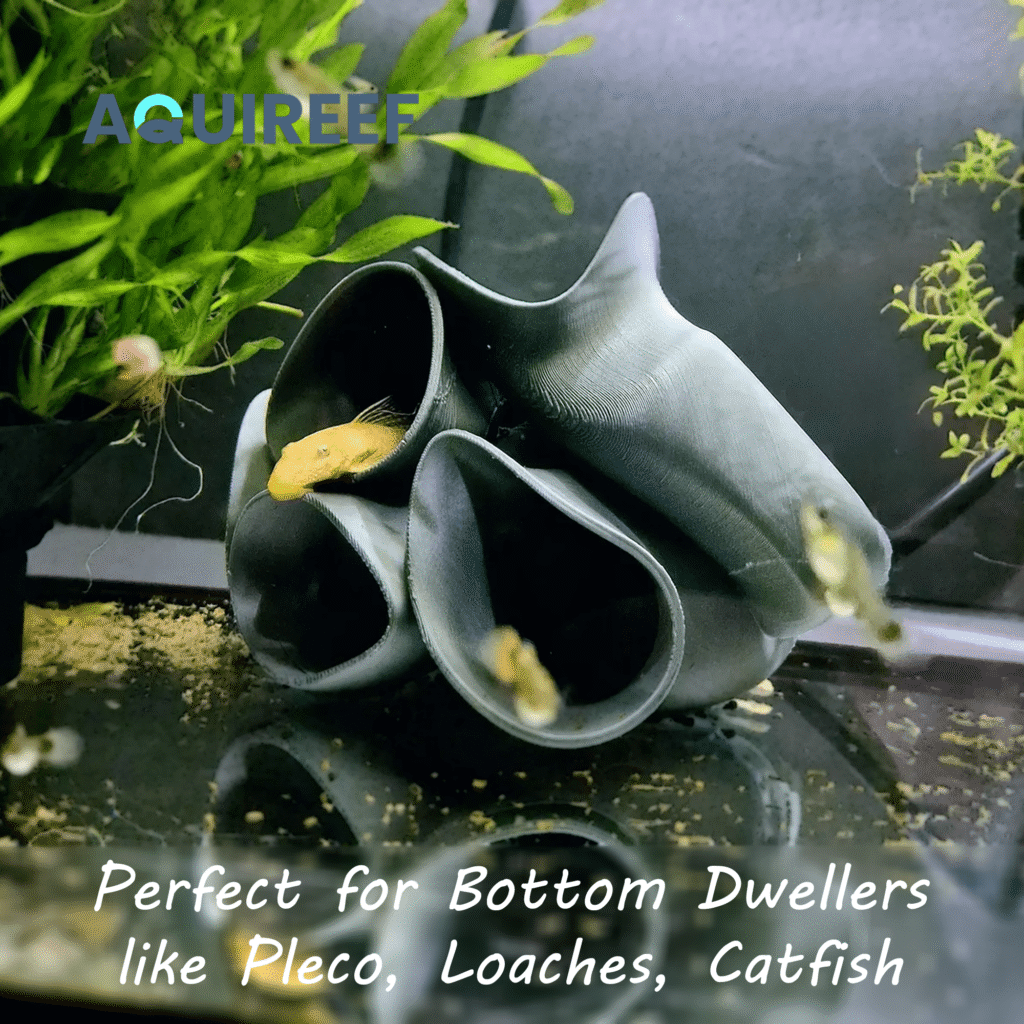
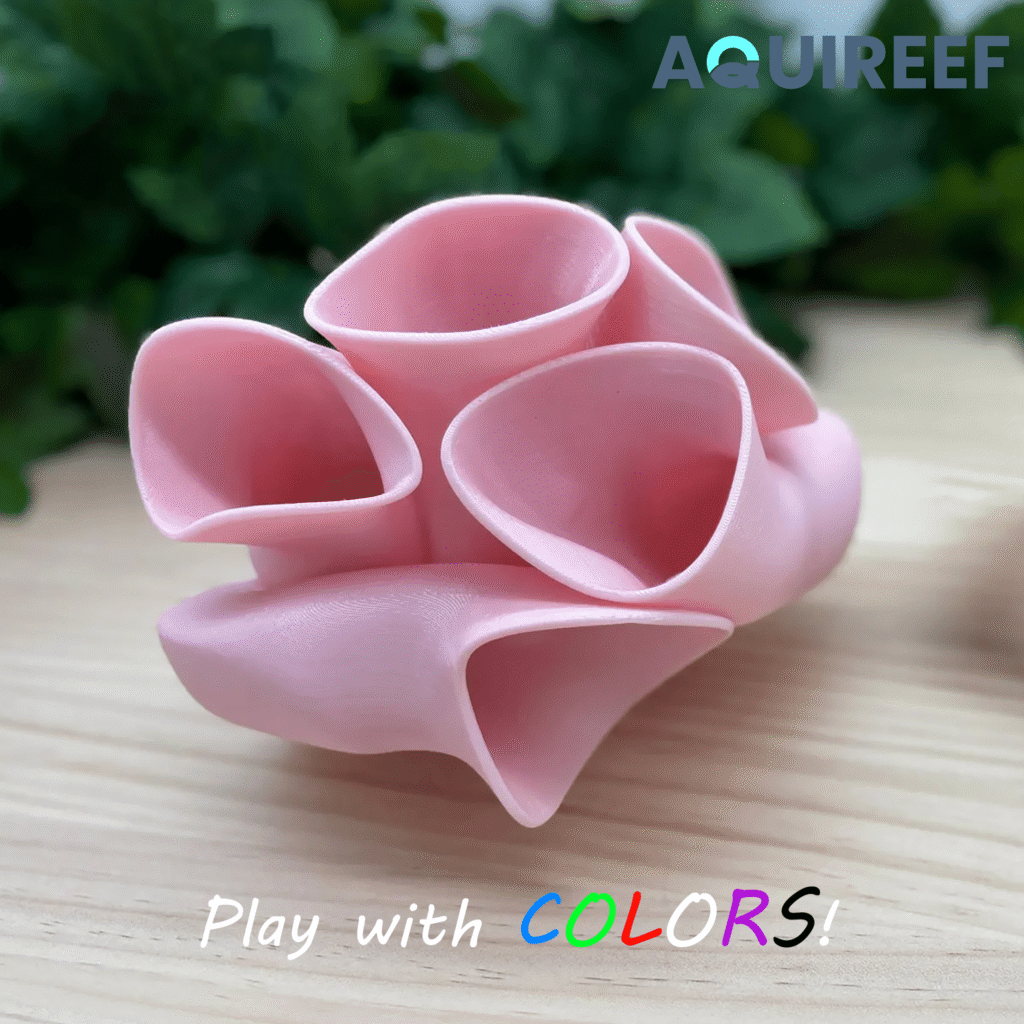
- Recommended layout: Long, narrow tubes closed at one end
- Size: 10–14 cm length, 4–5 cm diameter
- Why it works: Bottom dwelling fish males use caves to spawn and guard eggs.
- Placement tip: Along tank bottom, near driftwood, slightly downward-angled.
- Care tip: Clean inside with a turkey baster or siphon to remove debris.
💡 Fun fact: Males will block the cave entrance with their body — totally normal!
Betta Fish and Their Ideal Aquarium Cave Designs
The Cylinder Cave, Dragon Egg, Flower Cave & Betta Hammock Cave designs are all tailored to one, very popular home fish tank specie – the Betta Fish. Bettas are semi-aggressive, highly territorial fish known for their vivid colors and flowing fins. While they’re not “hiders” by nature, they seek out calm, shaded areas to rest, especially near the water surface. Males, in particular, like to claim small spaces where they can feel secure but still observe their surroundings.
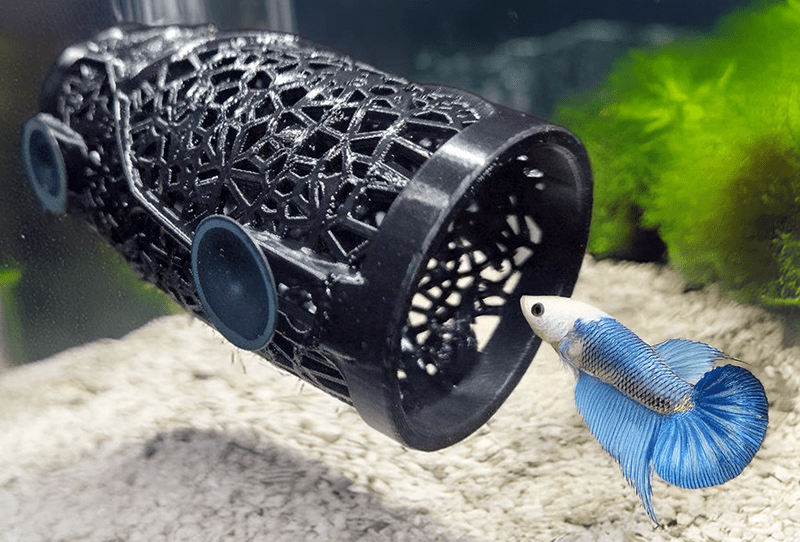
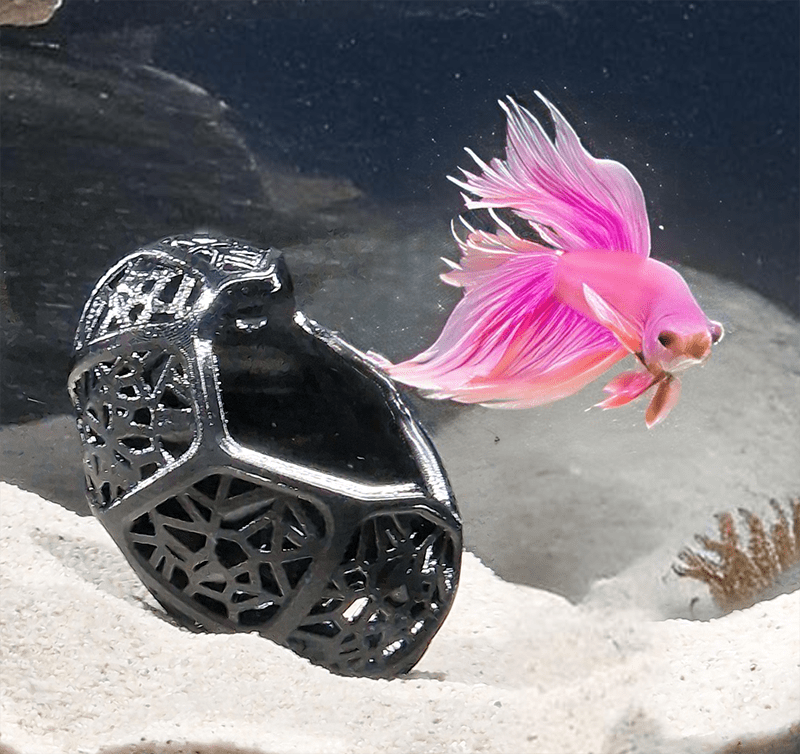
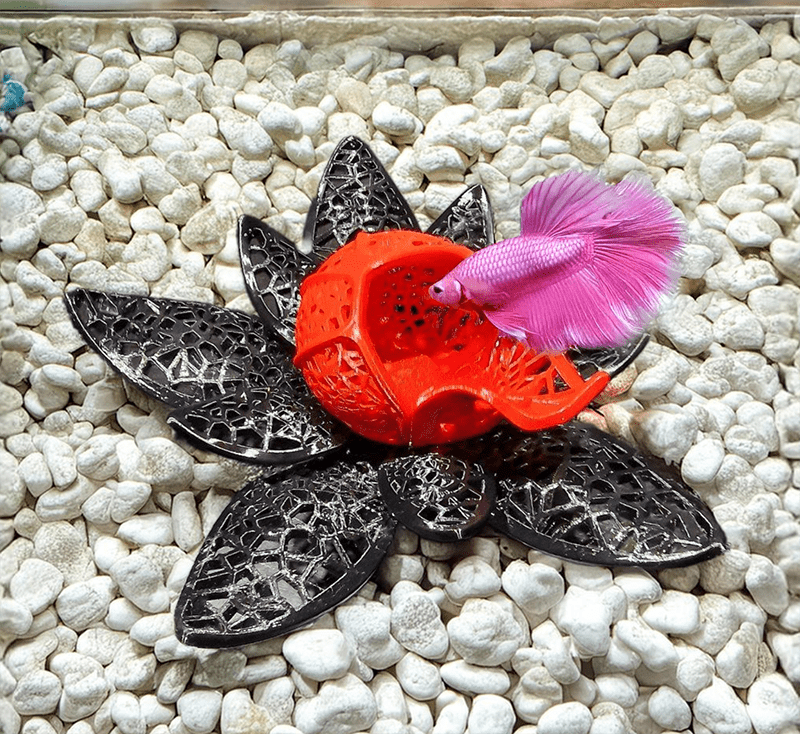
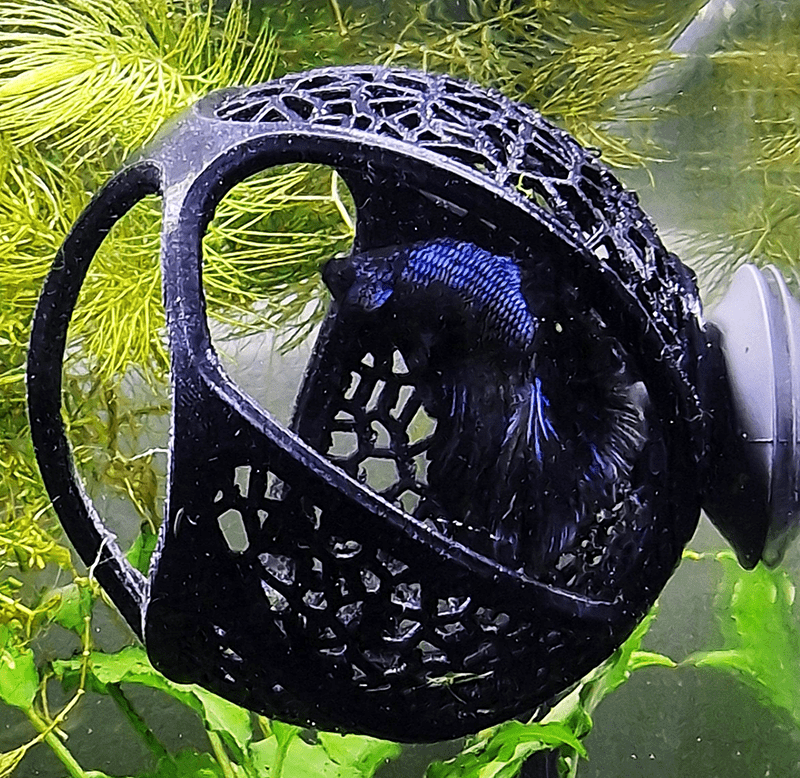
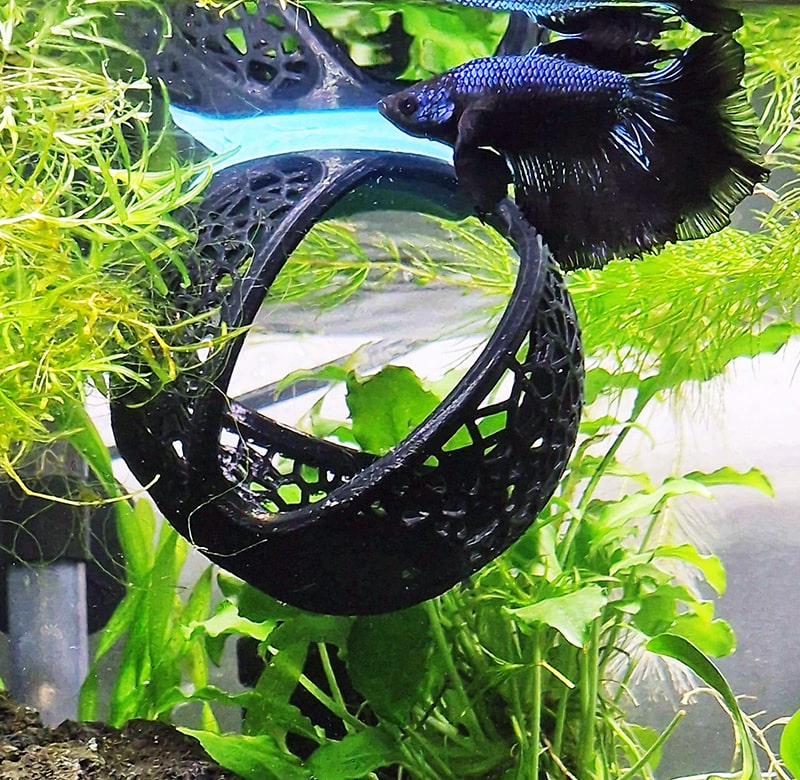
- Recommended layout: Small caves with smooth or voronoi walls
- Why it works: Bettas rest more than they hide. These caves offer safe, flow-protected areas.
- Placement tip: Near surface or on raised decor to match their resting preference.
- Care tip: Light cleaning only — they like familiar scents.
Why voronoi aquarium cave design works well for Bettas
- Open Structure, No Claustrophobia: Bettas dislike tight, fully enclosed spaces. Voronoi patterns offer a semi-open “lounge” — just enough shelter without confinement.
- Water Flow Compatibility: The gaps in Voronoi structures allow proper flow-through, reducing stagnant zones and oxygen depletion.
- Resting Comfort: Bettas often nap during the day. Smooth, curved surfaces give them a stress-free resting spot without risking torn fins.
- Line of Sight: They like to observe. The perforated walls give them visual access to their territory while still offering shade and privacy.
💡 Fun fact: My betta lounges in his hammock cave like I do in a couch! Just look at the guy 😎
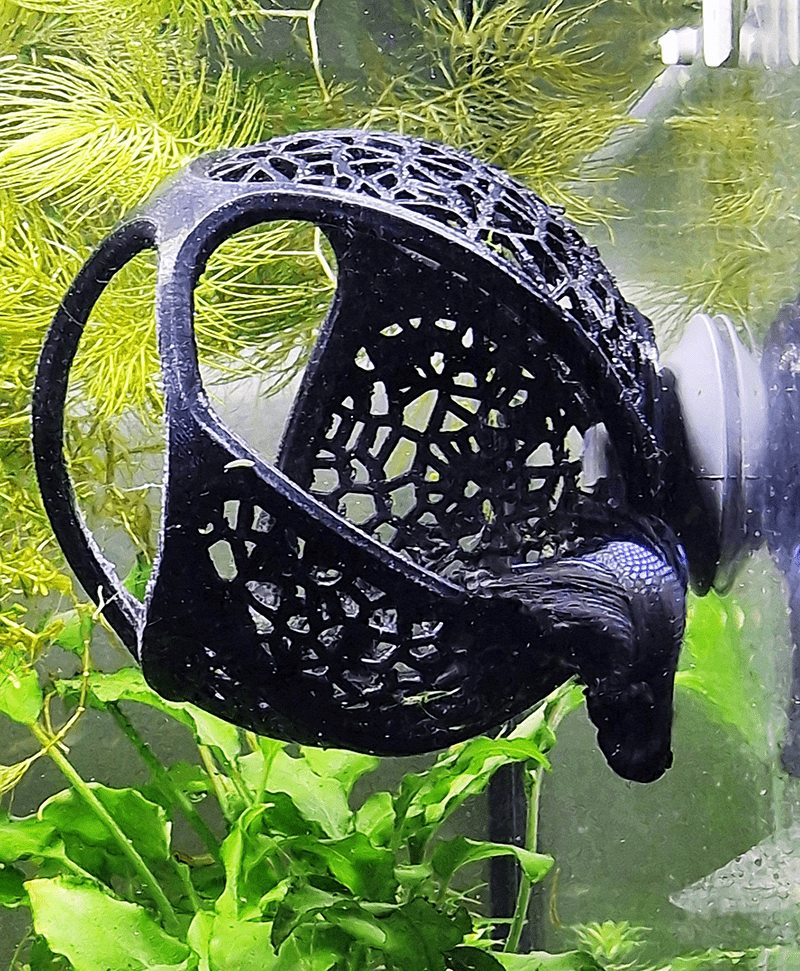
Any Universal Aquarium Cave Design to Fit Many Species?
Yes, it’s possible! My Atlantis Catacombs and Riptide — are great examples, definitely my bestsellers designed for versatility! These naturalistic & authentic looking caves suit a variety of popular aquarium species — from small schooling fish to bottom dwellers and crustaceans.
The idea for the Atlantis Catacombs came from the mythic ruins of the lost city of Atlantis — imagined as a forgotten stone labyrinth buried deep beneath the sea. That ancient mystery inspired the layered, cave-like tunnels, offering small aquatic species a sense of hidden refuge and adventure in their everyday habitat.
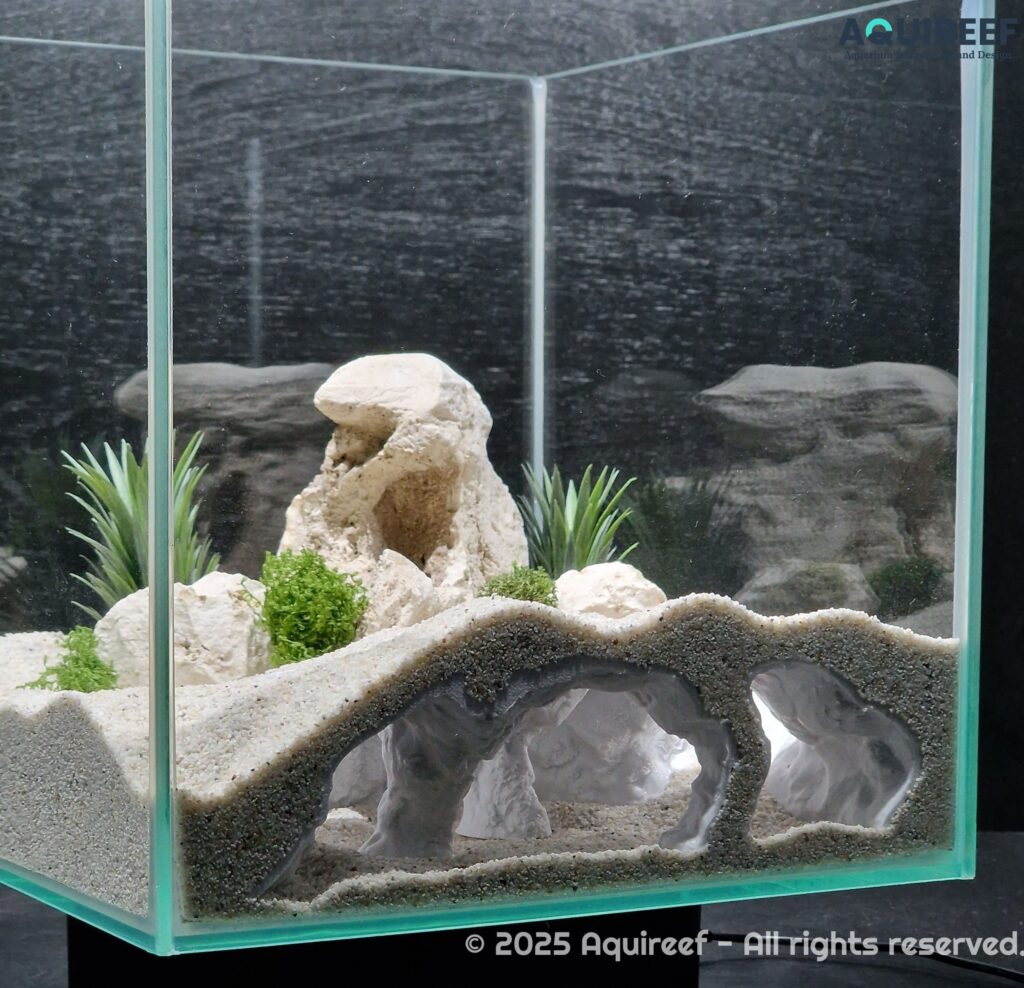
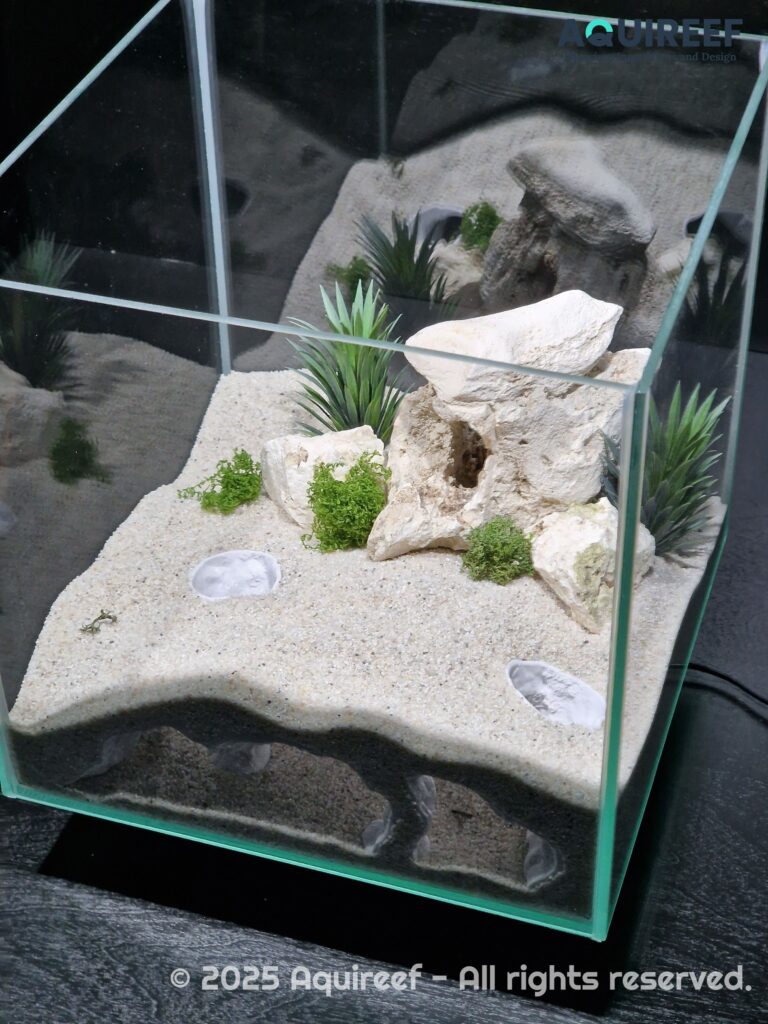
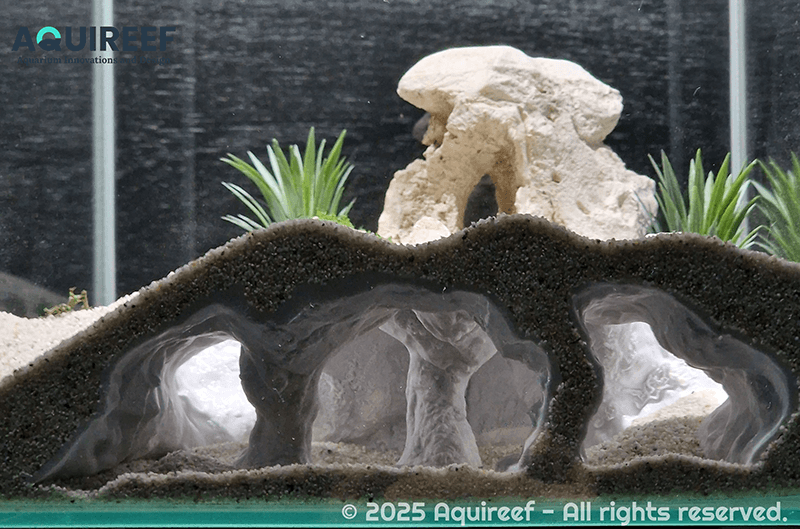
This cave design features a horizontal, chamber-like tunnel system with sand-textured walls and multiple entry/exit openings. It’s especially popular for species that enjoy layered, lower-level shelters — like shrimp (Caridina, Neocaridina), dwarf crabs (Limnopilos naiyanetri) and small, shy fish like zebra danios (Danio rerio) or barbs (Puntius spp.). The multi-lane layout allows several individuals to explore or rest simultaneously without direct confrontation, making it ideal for community tanks with bottom dwellers or territorial species who need visual separation.
Riptide, on the other hand, stands out with the sculpted rocky look, larger archways and an open yet enclosed feeling. The inspiration for the Riptide cave came from the dynamic, swirling water patterns seen near rocky coasts and reef drop-offs — a place where fish dart between overhangs and shadows. That natural chaos is translated into a bold, flowing design that creates territorial space and visual excitement in any tank.
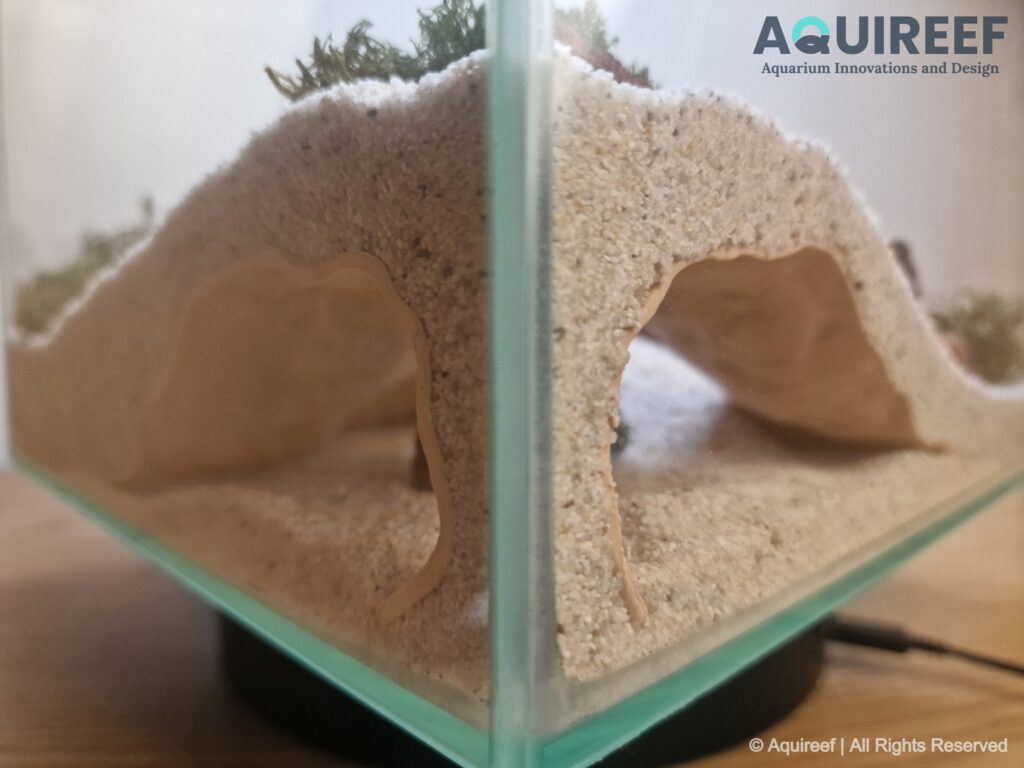
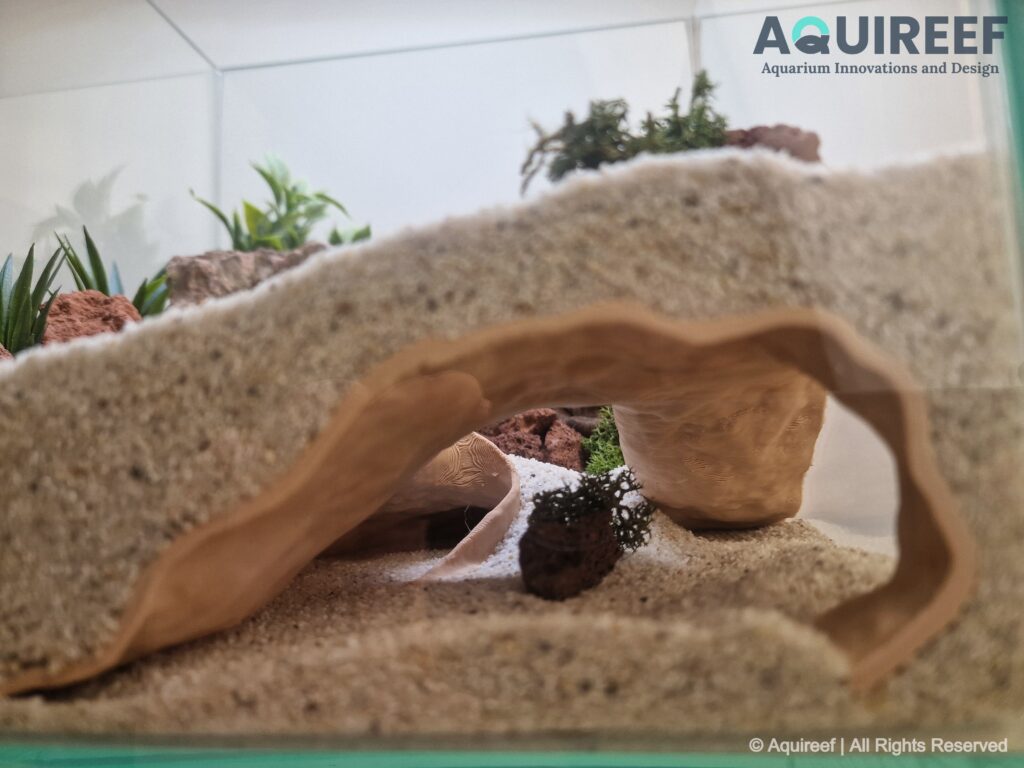
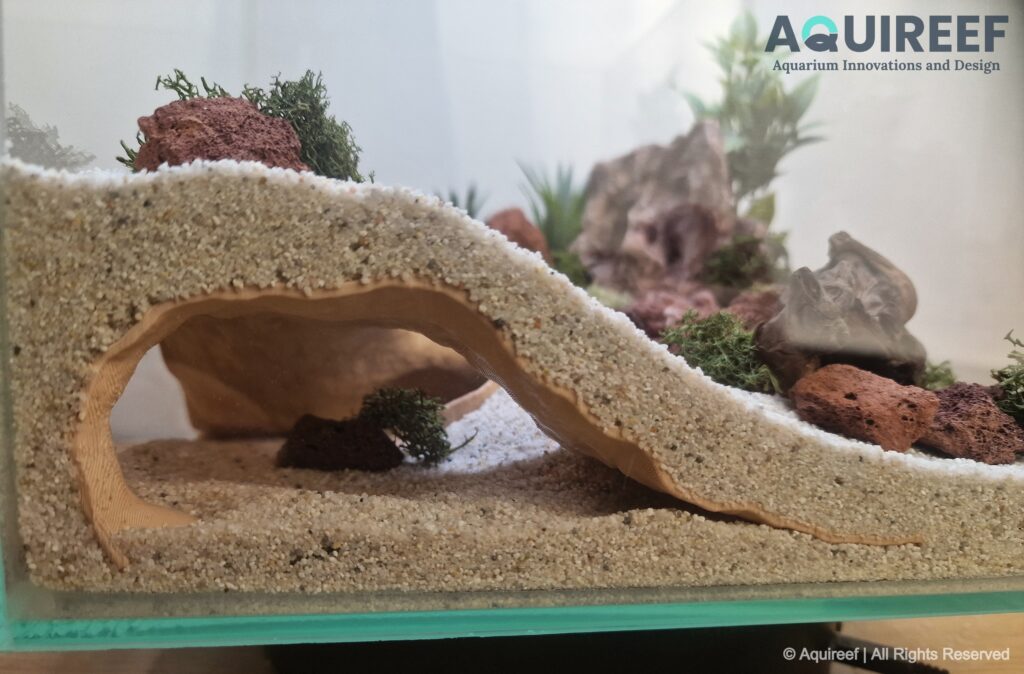
It offers a great mid-to-large option for fish like African cichlids (Labidochromis, Pseudotropheus), guppies (Poecilia reticulata), swordtails (Xiphophorus hellerii) and even crayfish (Procambarus clarkii) who like more room to maneuver. The Riptide cave design design creates visual flow and naturalistic depth while serving as a defensive territory hub for more dominant tank inhabitants.
Together, these two models balance natural aesthetics, multi-species compatibility and functional versatility, making them standout universal pieces in the Aquireef3D catalog. These designs work well in medium and large tanks where you want to balance form and function. Whether you’re creating a natural aquascape or simply adding character to your tank, Atlantis Catacombs and Riptide provide universal appeal across species — without compromising safety or style. Just look at the different aquatic pet types, that could call one of these designs their true home:
- Shrimp (Neocaridina, Caridina)
- African cichlids (Labidochromis, Pseudotropheus, Neolamprologus)
- Guppies (Poecilia reticulata)
- Zebra danios (Danio rerio)
- Barbs (Puntius tetrazona, etc.)
- Swordtails (Xiphophorus hellerii)
- Crayfish (Procambarus clarkii)
- Dwarf crabs (Limnopilos naiyanetri, Thai micro crabs)
Final Thoughts: Choose a Cave That Matches Their Nature
At the end of the day, choosing the right cave isn’t about trends — it’s about understanding your aquatic pet’s natural instincts and building a habitat that supports them. From territorial cichlids to curious shrimp, each species has its own comfort zone and a well-designed cave can make the difference between surviving and thriving.
3D printing gives us the freedom to design with purpose, not just aesthetics — whether it’s the complexity of gyroid tunnels, the calm openness of Voronoi lounges, or the bold shelter of the Riptide. And when done right, even one well-placed cave can restore balance, reduce stress and bring your entire aquascape to life.
Don’t just decorate — design (or choose a ready-to-print design) with intention. Your fish will feel it. And you’ll see the results.
💬 What’s Your Favorite Aquarium Cave?
I’d love to hear from you! Drop a comment below and share which cave designs you’ve tried, which species you keep and how they’ve interacted with their shelters. Remember – your feedback helps improve future designs and inspires others in the community!
📩 Want exclusive insights, updates and free STL files?
Subscribe to my newsletter today and be the first to access valuable cave design tips and download selected models for free starting July 1st. Don’t miss out — your next great aquascaping idea could be just one email away!
📚 While you’re here, don’t forget to check out my latest posts below — packed with practical tips, inspiration and tutorials to level up your aquarium game while you wait for the next article drop.
- Is 3D Printing Food Safe? Here’s the Real Truth
- 3D Printed Reptile Hides Exposed: Crucial for Welfare or Just Terrarium Decor Hype?
- 3D Print Bed Adhesion — What Works Best To Avoid Failed 3D Print?
- Are Aquarium Caves Really Critical for Fish and Shrimp Health? Does 3D Print Decor make a Difference for your Aquatic Pets?
- Why Aquarium Plant Holders Are Changing the Game for Tree Lovers
